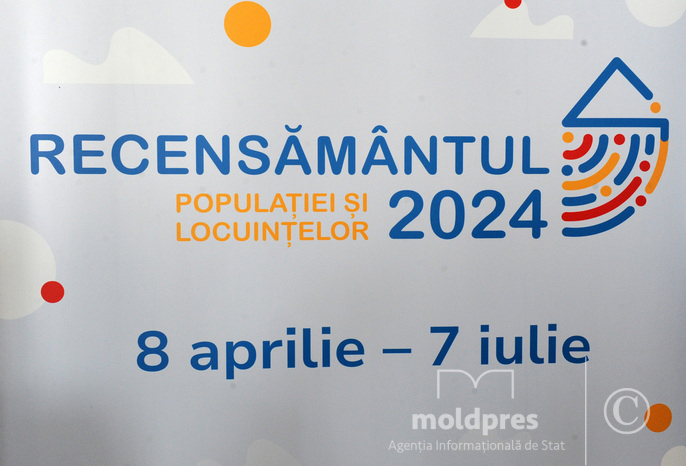
Population and housing census in Moldova: most common difficulties reported by citizens vision, mobility, hearing impairments
The most common difficulties in performing daily activities, reported by citizens in the Population and Housing Census, are vision and mobility impairments with rates of 29.6 and 19.6 per cent, respectively, among the population aged five years and older. They are followed by hearing impairments and difficulties in memory or concentration. The National Bureau of Statistics (BNS) unveiled data to this effect today.
According to the quoted source, the ratio of people who reported severe difficulties or total incapacity in at least one of the four functionality domains was 12.8 per cent.
Thus, people in villages face greater challenges with mobility and memory. The difference remains, though somewhat lesser, in the case of vision and hearing impairments.
At the same time, women face greater difficulties with vision, mobility, memory, and hearing compared to men.
BNS data also shows that the rates of all types of difficulties in performing daily activities, such as vision, hearing, mobility and memory/concentration, increase sharply, especially after the age of 60.
Moreover, almost eight out of ten people aged 90 and over have severe difficulties or a complete inability to carry out daily activities.
The census’ results also highlight that 1,436,600 people (or 63.2 per cent) reported that they did not face difficulties in any of the aforementioned areas.
BNS director Oleg Cara said that, during the 2024 census, data regarding functional difficulties in performing daily activities had been collected according to the concise set of questions recommended by the Washington Group for disability statistics and in line with the recommendations of the UN Economic Commission for Europe for population and housing censuses.
“The collected data is not just numbers; it's information about access, participation, opportunities and also barriers. It aims to guide the development of services and infrastructure, in order to remove these barriers and ensure that no one is left behind, but the social inclusion for all people is ensured,” said Oleg Cara.
Resident Representative of the UN Population Fund (UNFPA) in Moldova Karina Nersesyan expressed hope that the use of census data would help improve the quality of life for all citizens, including the most vulnerable groups.
The Population and Housing Census was conducted during April 8-July 7, 2024. During this exercise, about 2.4 million people, including those with habitual residence as well as those without habitual residence in Moldova, were surveyed.
The census takes place once every ten years, being a large-scale national activity that provides a full demographic picture of the country. The data collected from the census will provide information for the development of public policies, both national and local, necessary for the economic and social development of the country.
Moldova not to be affected by sanctions on Russian oil companies, speaker says
Ministry of Foreign Affairs announces evacuation operation of citizens from Gaza Strip with international support
Environmental protection has become national priority - environment minister says
DOC // President appointed Alexandru Munteanu as candidate for Prime Minister
Speaker provided details on nomination process for Prime Minister candidate
Justice Minister's report: Over 400 extraditions completed and EU directives implemented in recent years
Acting justice minister: Judicial system reconfigured, over 100 new judges and 37 new prosecutors promoted
Minister of Justice presents activity report: Over 65% of 2020-2025 strategy actions accomplished
Nicolae Testemitanu Medical University of Moldova awards honorary title of Doctor Honoris Causa to professor, president of Romania's National Council of Rectors
European Commissioner says current determination to shape Moldova's place in Europe for next generations
Moldovan parliament approves establishment of 12 standing commissions of XIIth legislature
Territorial reform, local autonomy under spotlight of Council of Europe; recommendations for Moldova
Members of standing bureau held first meeting
President at Paris Peace Forum: Social media platforms – once promise of freedom and transparency – have become vast spaces of manipulation
High-level dialog on finance and economic growth held in Chisinau
Implementation of new Forestry Code and environmental legislation under focus of prosecutors and judges
MOLDPRES REPORT // Friendship, respect, partnership: 102 years since proclamation of the Republic of Turkey celebrated in Chisinau
Moldovan president's speech at Paris Peace Forum
Moldovan president meets PM of Armenia
Moldovan president says Kremlin used disinformation at parliamentary elections, so as to undermine trust in free voting, subsequently seize power in Moldova
PHOTO GALLERY // Consultations at Moldovan parliament; PM-designate discusses with parliamentary factions' representatives
Moldovan president at Paris Peace Forum says Europe must grow - EU enlargement not act of charity, but of security
Sanctions on LUKOIL do not affect aircrafts' refueling in Chisinau at present
PM-designate says had constructive consultations with parliamentary factions, to analyze proposals made
EU Parliament's Office in Chisinau to be inaugurated on November 7; European Parliament president to attend event

